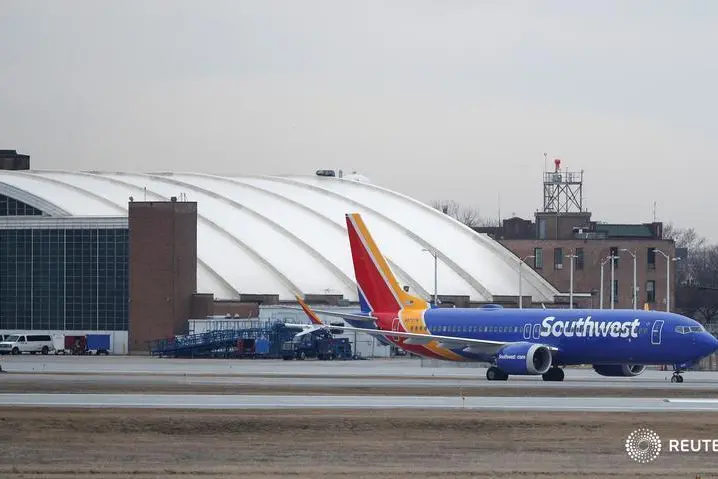PHOTO
Southwest Airlines and its pilot union will offer sharply contrasting reasons for the low-cost carrier's meltdown in December that disrupted travel plans for two million customers, ahead of a U.S. Senate committee hearing on Thursday.
While Southwest has cited weather impacts, the union will single out poor preparation and a failure to modernize technology, according to written testimonies for the hearing, seen by Reuters.
The meltdown canceled almost 17,000 flights and is estimated to have cost more than $1 billion. It has also prompted a lawsuit from shareholders and a U.S. Department of Transportation investigation.
The Dallas-based airline attributed the breakdown in service to a "historic" winter storm, both in size and scale, which caused frozen jet bridges and icy aircraft engines.
It has also defended its computer system, saying the technology "worked as designed," while adding the airline has tapped General Electric Co to improve crew rescheduling capability and hired consultant Oliver Wyman, a unit of Marsh McLennan, to recommend operational changes.
Southwest's Chief Operating Officer Andrew Watterson repeated that message in his testimony, saying the airline experienced a "historic event" with a combination of challenges it had not confronted before.
"What began as a weather event on December 21st turned into a crew scheduling event by December 24th," said Watterson.
But Southwest's pilot union, which is in contract negotiations with Southwest, blames the company and its leadership for a "failure" to modernize crew management processes and technology and to prepare for the storm.
Casey Murray, president of the Southwest Airlines Pilots Association (SWAPA) said the union has been sounding the alarm about the carrier's crew scheduling technology and "outdated" operational processes for years.
"Unfortunately, those warnings were summarily ignored," he said.
The debacle has put Chief Executive Bob Jordan in the eye of a storm as he faces pressure to restore the airline's credibility and regain the trust of customers, just one year after he took the helm.
Jordan has apologized and taken responsibility for the troubles, vowing to prevent a repeat.
Murray said while Jordan inherited a "massive, complex operation held together by duct tape and baling wire," he must show through actions that the company is serious about change.
The committee had asked Jordan to testify but Southwest said the hearing conflicted with other commitments, including an employee rally in Baltimore on Wednesday. (Reporting by Rajesh Kumar Singh and David Shepardson; Editing by Josie Kao)





















